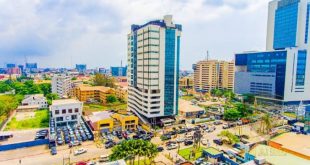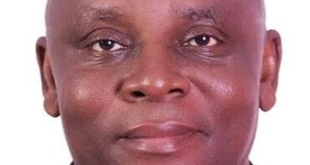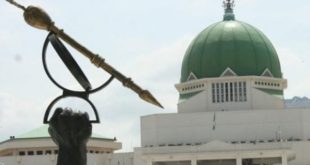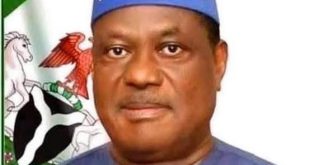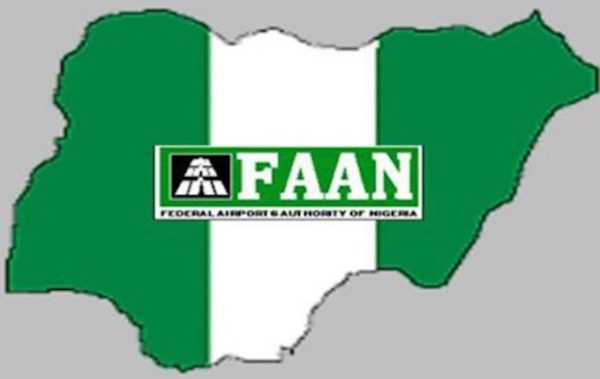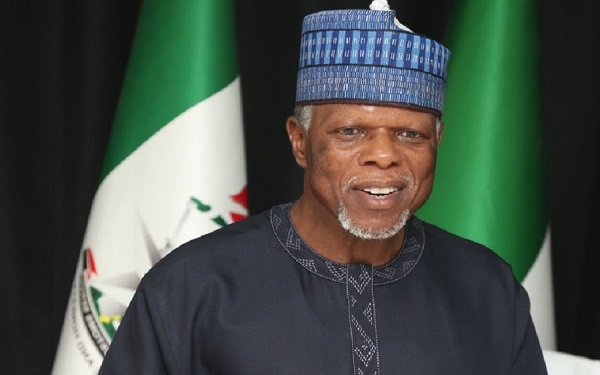
COMMUNIQUE ON THE ONE DAY BUSINESS DISCOURSE TO X-RAY THE PROPOSED EXCISE DUTY REGIME FOR CARBONATED AND NON-CARBONATED BEVERAGES IN A RECOVERING ECONOMY HELD AT THE MMS INTERNATIONAL IMAGE CENTRE, LAGOS ON NOVEMBER 9TH, 2021
INTRODUCTION
The one-day business discourse organized by MMS Plus Newspapers to aggregate the views of operators in the public and private sectors on the merits and demerits of the planned re-introduction of Excise Duty on carbonated and non-carbonated drinks by the Nigeria Customs Service(NCS),supported by the joint National Assembly Committee on Finance. It was a hybrid event, as such participation took place physically and virtually on the theme: “X-raying The Proposed Excise Duty Regime For Carbonated Beverages In A Recovering Economy”

In attendance were the moderator of the event, Otunba Kunle Folarin, Chairman, Ports Consultative Council(PCC);Comptroller General of the Nigeria Customs Service(NCS), Col. Hameed Ali(rtd), represented by the Customs Area Controller(CAC) of Lagos Industrial Command, Comptroller Monica Shaahu; Executive Secretary, Nigerian Shippers’ Council(NSC), Hon. Emmanuel Jime, who was also represented virtually by the Director of Consumer Affairs,Chief Cajetan Chukwuemeka Agu.
Others in attendance were the President of Manufacturers Association of Nigeria(MAN), Engr. Mansur Ahmed, represented by Fred Chiazor; Dr. Ikenna Nwosu, Nigerian Economic Summit Group(NESG); National President, Water Producers of Association of Nigeria(WAPAN), Mr. Mackson Egberi; and a host of other stakeholders.

While Kunle Folarin moderated the discussion through virtual appearance, the Executive Secretary, National Action Committee on African Continental Free Trade Agreement(AfCFTA), Dr. Francis Anatogu, also participated online, including former National President of National Association of Government Approved Freight Forwarders(NAGAFF), Dr. Eugene Nweke; former National President of Association of Nigerian Licensed Customs Agents(ANLCA), Prince Olayiwole Shittu.

PRESENTATIONS
Paper Presentations were made by the Comptroller General of Customs on the topic: “The Merits and Demerits of Excise Duty in a Covid19 Recovering Economy”; with Hon. Jime also speaking on “The Place of Excise Duty In Attaining Competitive Nigerian product for the AfCFTA Market : A Perspective of the Nigerian Shippers’ Council”
The discussion was enriched with robust contributions by panelists including Engr. Mansur Ahmed, President of MAN, Dr. Ikenna Nwosu, Mr. Mackson Egberi, Mr. Francis Anatogu; with a host of others.
OBSERVATIONS
Participants took a wide range look at the proposed excise duty, ranging from policy, economic, legislative, industry, social, environmental, human, production and commerce; even up to regional, continental and global outlook, aimed at finding a nexus for or against the proposal. They tweaked the theme to include “non-carbonated beverages” to capture the full essence of the government proposal as intended in the planned amendment of the Finance Act.
Presentations were made from the government and the private sector. While the Nigeria Customs Service sought to highlight government’s need to expand the scope for the search for more revenue to work with, and explored perceived health concerns associated with carbonated beverages as support base, the Service also alleged that some multinational soft drink producers like Coca-Cola don’t pay tax in Nigeria whereas they do in other climes, citing Ghana as an instance.
Government also attempted to rationalize the proposed excise regime from the point of view of dwindling revenue occasioned by the Covid-19 soaring scourge and its attendant economic disruptions.
The organized private sector, labour and economic watchers, however, noted that the observed global disruption in industrial and productive activities alone is a sufficient reason government should have thought otherwise about planning a further tax regime when other countries are providing stimulus recovery packages and palliatives to support economic productive activities.
Although government participants made the point that the planned excise regime is for local consumption and not targeted at locally manufactured goods for export, participants tasked one another for a moral reflection to choose between looking healthy and giving up a little to economic growth; or looking unhealthy based on the assumed health hazards of the drinks in question to having a vibrant economy.
It was also observed that Nigeria does not have a sugar health related problem, citing available data that indicates that Nigeria’s per capita sugar consumption in 2019 is about 8 kilograms, believed to be much lower than the global average of approximately 36 kilograms per person; and up to 90kg/person in UK and America.
Presentations by the organized private sector and non-government actors noted that the proposed excise policy will further exacerbate the already overtaxed productive sector, leading to factory close down, job losses and slow down the gross domestic product(GDP).
Instructively, participants frowned at such a critical proposal to the extent of fixing a time frame for implementation without government engaging those it aims to tax.
It was observed that in the face of manufacturers grappling with critical challenges such as forex restrictions and currency devaluation, there have been multiple tax increases in recent times; with excise duty increased on alcoholic beverages in 2018 and VAT increased in 2020.
Participants further observed that rather than engage in expanding the scope of taxation, government should increase the efficiency, transparency and accountability in the collection of existing taxes; which they noted is prone to poor collection system and poor management.
Interestingly, participants also expressed mixed feelings about the scope of the proposed regime, as government appeared to have adopted a deliberate rather nebulous definition of it. Consequently, government was asked to properly define the scope of coverage to prevent excesses.
Participants observed that the Nigeria Customs Service that has championed the proposed excise policy lacked the mandate to act as a policy maker; and should excuse itself from making policies to one of implementation of policies.
Participants were of the view that the timing is not right even if the decision to introduce the tax regime from next year is wise. Participants and panelists further observed that the proposed excise regime could lead to “cutting of corners” by manufacturers, a factor which could endanger the lives of citizens.
Participants also observed that the proposed policy re-introduction negates government’s economic recovery plans such as the Economic Recovery and Growth Plan(ERGP) and the Economic Sustainability Plan(ESP) geared towards providing stimuli for industrial growth with the Micro,Small and Medium Enterprises(MSMEs) as the pivot.
Arising from all the above, participants urged government to put the proposed excise regime on carbonated and non-carbonated beverages on hold pending proper engagement and dialogue among all relevant stakeholders and advised the government to stop behaving like a military dictatorship.
RECOMENDATIONS
Participants made wide range of recommendations that will create confidence building and enabling atmosphere amongst stakeholders for the proposed tax regime and such plans in future. They include:
1) That government should stop making selfish, disproportionate and uninformed comparison in its attempts to farm for tax raise by gleefully mentioning names of countries with similar tax regime, when unlike the countries in reference, the Nigerian government is the worst global culprit in the neglect of essential infrastructure and logistics necessary to support production and distribution of goods.
2)That re-introducing excise duty on carbonated beverages would be counter-productive to the Federal Government’s Sugar Master Plan for the sugar industry and warned that projected volume will plummet as a result of excise duty.
3)That a bottle of soft drink is considered a major part of a meal for an average individual in Nigeria and advised government on the need to be cautious in its evaluation to avoid impacting the most vulnerable people who do not have purchasing power.
4)That government should embark on a full-scale stakeholders engagement, noting that government does not know it all and needs to co-create solutions with industry stakeholders as against imposition.
5)That government should explore the following alternative revenue sources: introduction of taxes on digital services, similar to technical and management services; engage in proper VAT collection system that will permit greater recovery of all input from VAT, including raising rate to double digit, which will allow those currently outside the VAT basket to be embraced.
6)That in view of the unconfirmed evidence that there is a concentration of collection and enforcement efforts on a few large and some medium scale enterprises, government should consider implementing other strategies to improve and enforce collections of existing taxes.
7)That the federal government to suspend the planned re-introduction of excise duty on non alcoholic beverages in 2022 and propose review in 2023, initiate a dialogue and design approach, while working with the industry to carry out an in-depth impact assessment to fashion out the best approach that would offer value for all concerned.
 MMS PLUS NG – Maritime, Aviation, Business, Oil and Gas News Online Newspaper with coverage in Maritime, Oil and Gas, Aviation, Power and Energy as well as Financial News
MMS PLUS NG – Maritime, Aviation, Business, Oil and Gas News Online Newspaper with coverage in Maritime, Oil and Gas, Aviation, Power and Energy as well as Financial News



